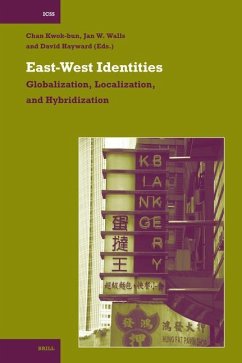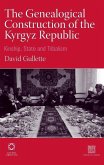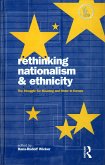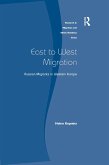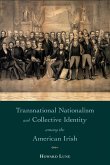Under the simultaneous influences of globalization and localization, there has emerged a prevalent social formation based on a hybridized culture in which the cultural norms are many and various: boundary transcendence, alternative cultures, cultural hybridity, cultural creativity, connectivity, tolerance, multiculturalism, cosmopolitanism. While the economic forces shaping globalization are powerful and seemingly getting stronger, they are not immutable, nor are their effects predictable or necessarily overwhelming. Contributors to this book are optimistic that the socio-cultural formations of the future, such as cultural hybridity and cosmopolitanism, will be a viable option for constructing new or renewed global communities of migrants around the world. It is on these diasporic communities that the self-definition (the self-identity) and cultural expansion of all migrants depend, and it is with these tools that migrants are best equipped to navigate the raging torrents of globalization in the new millennium of a post-postmodern era. Globalization brings with it a fear, a sense of loss and demise. It also brings with it a new sense of opportunity and hope. It is in this spirit that this book should be read.
Contributors: Chan Kwok-bun, Jan W. Walls, David Hayward, Michael E. DeGolyer, Lam Wai-man, Georgette Wang, Emilie Yeh Yueh-yu, Lu Fang, Nan M. Sussman, Rie Ito, Oscar Bulaong Jr., Brian Chan Hok-shing, Millie Creighton, Anthony Y.H. Fung, Ho Wai-chung, Chiou Syuan-Yuan, Chris Wood, Chung Ling, Steve Fore, Todd Joseph Miles Holden, Ashley Tellis, Jeffrey S. Wilkinson, Steven McClung
Hinweis: Dieser Artikel kann nur an eine deutsche Lieferadresse ausgeliefert werden.
Contributors: Chan Kwok-bun, Jan W. Walls, David Hayward, Michael E. DeGolyer, Lam Wai-man, Georgette Wang, Emilie Yeh Yueh-yu, Lu Fang, Nan M. Sussman, Rie Ito, Oscar Bulaong Jr., Brian Chan Hok-shing, Millie Creighton, Anthony Y.H. Fung, Ho Wai-chung, Chiou Syuan-Yuan, Chris Wood, Chung Ling, Steve Fore, Todd Joseph Miles Holden, Ashley Tellis, Jeffrey S. Wilkinson, Steven McClung
Hinweis: Dieser Artikel kann nur an eine deutsche Lieferadresse ausgeliefert werden.

